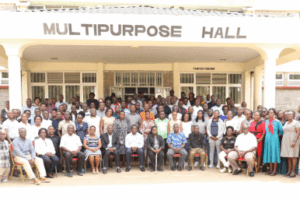
MMUST Continues to Boost Its Institutional Performance as It Conducts Productivity Mainstreaming Workshop
In an effort to enhance its institutional performance, Masinde Muliro University of Science and Technology (MMUST) conducted a 3-day productivity mainstreaming workshop from 1st to 3rd September 2025. Organized by the Directorate of Performance Monitoring and Evaluation (PME), the workshop brought together key managers from across the University sections to analyze the root causes of the institution’s 2024/25 performance metrics, and develop strategies to boost its productivity index. The workshop was facilitated by experts; Ms. Jane Maina and Mr. John Chege from the National Productivity and Competitive Centre (NPCC).

The Deputy Director-National Productivity and Competitive Centre (NPCC), Ms. Jane Maina facilitating during one of the sessions.
Representing the Vice Chancellor, the Ag. Deputy Vice Chancellor for Planning, Research and Innovation, Prof. Peter Bukhala challenged the common practice of blaming all failures on a lack of funding. He commended the Deans and Directors for their commitment to identifying core issues in the University’s processes and providing alternative counter measures.
“This exercise has helped us identify the root causes that hinder our progress. The thoroughness with which we have analyzed these issues is truly commendable as it provides a strong foundation for developing effective solutions,” said Prof. Bukhala.

The Ag. Deputy Vice Chancellor for Planning, Research and Innovation, Prof. Peter Bukhala during the event.
Speaking on behalf of the Deputy Vice Chancellor Administration and Finance, Prof. Maurice Vincent Omolo highlighted the University’s performance gain, noting an improvement in its productivity index from 1.625 to 1.824. “The principles of enhanced efficiency, optimized resource allocation, and streamlined operational workflows are the foundations of our sound financial stewardship. This is an opportunity for us to identify and strategize on mechanisms to mitigate inefficiencies in our systems and ultimately, lead us to a higher return on investment for our resources,” remarked Prof. Omolo.
Similarly, the Director PME, Prof. Joseph Nasongo expressed his gratitude to the participants for their commitment and resilience in developing the root cause Analysis and the counter measures. He also appreciated the facilitators for their expert guidance. “The importance of this exercise cannot be overstated. Executing it correctly will have a University-wide impact, directly improving our performance and the implementation of our Strategic Plan. Let us continue to reflect and work with commitment to improve our University’s performance,” he stated.

The Director PME, Prof. Joseph Nasongo (far left) with Prof. Peter Bukhala keen following discussions.
One of the facilitators, Ms. Jane Maina, who is the Deputy Director NPCC emphasized the need for an honest evaluation of the root causes for University’s performance. She guided the teams to focus the root cause analysis on processes and systems, rather than individual actions. “Most performance issues stem from systemic breakdowns and not individuals. We need to focus on our processes as we analyze the root causes of our problems to avoid a culture of blame games, which often deter us from solving the real issues. By fixing the processes we can implement sustainable solutions that will improve efficiency and ensure the university’s continued success into the future,” she noted.

A section of the Deans participating in group discussions.
During this three-day workshop, the Productivity Mainstreaming Committee, which comprises of the University Management Board, Deans and Directors analyzed a total of 15 performance metrics cutting across the three main Divisions in the University. The committee identified several institutional productivity challenges and, as a result, developed the Root Causes Analysis (RCA) for MMUST’s performance. The RCA will then be reviewed by the Productivity Mainstreaming Champions and presented to management for implementation.
With the formulation of the RCA’s and consequently, the Productivity Improvement Strategy, MMUST is certainly shifting towards a culture of continuous improvement, which will ensure its long-term financial wellness and operational efficiency.
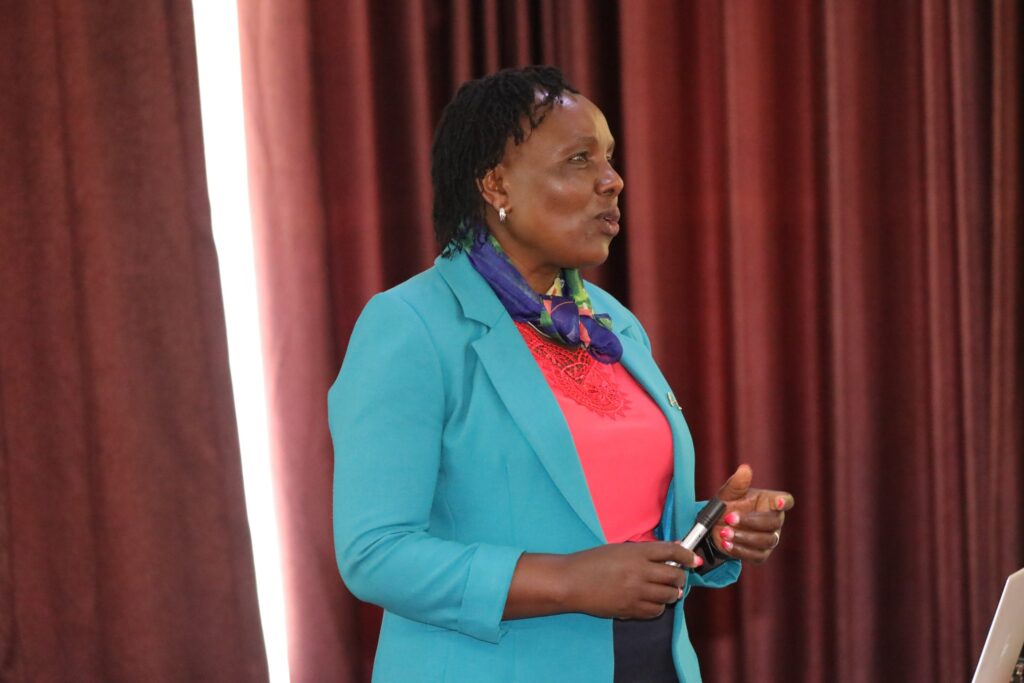

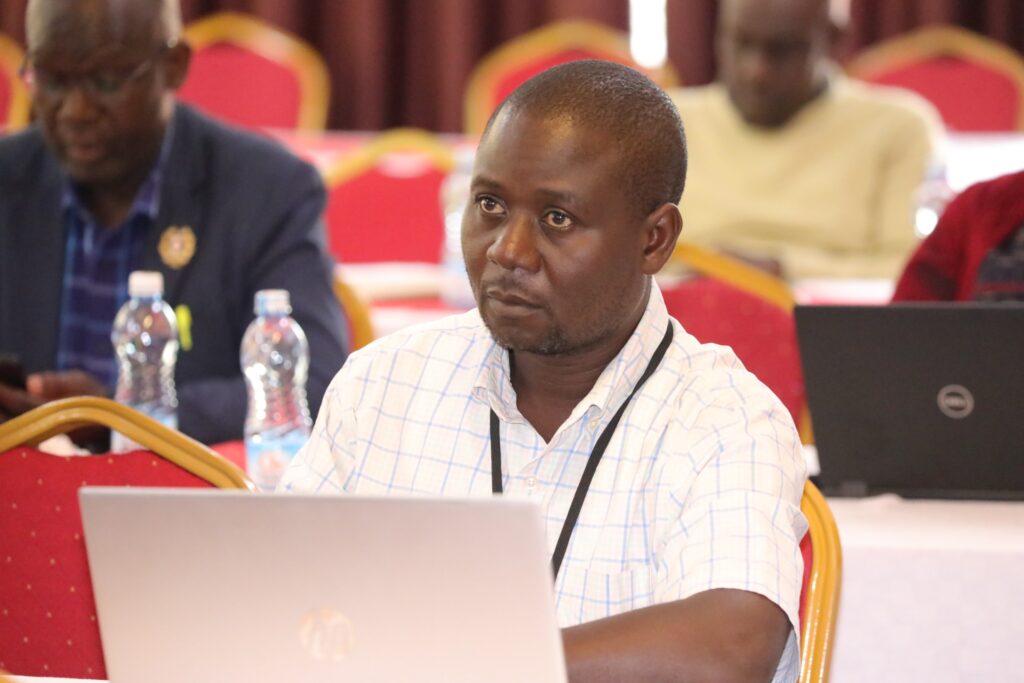
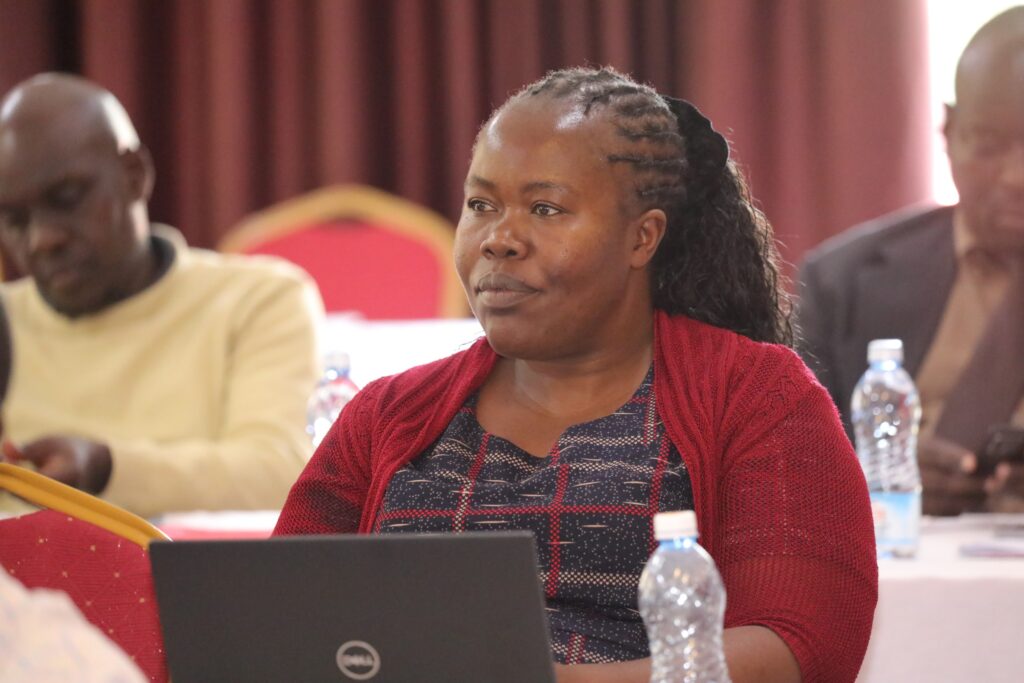
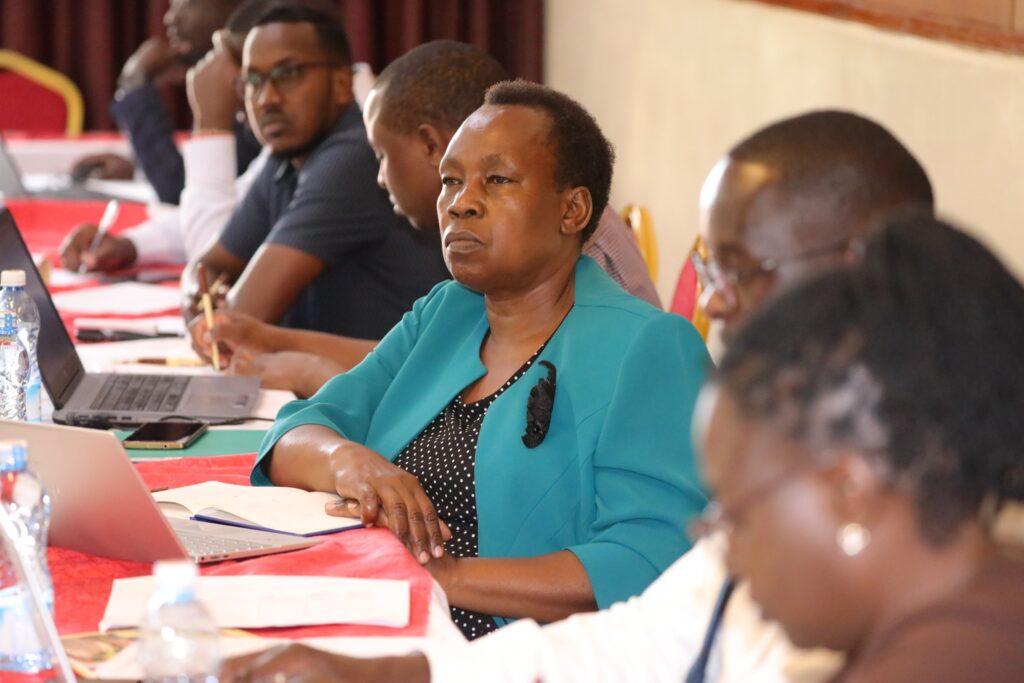
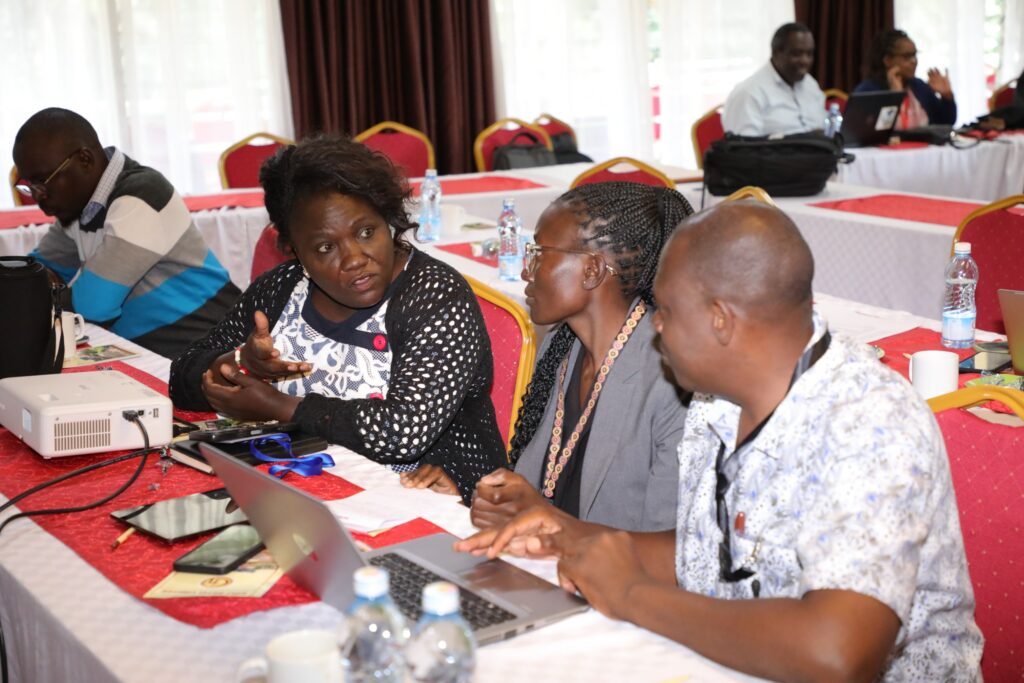
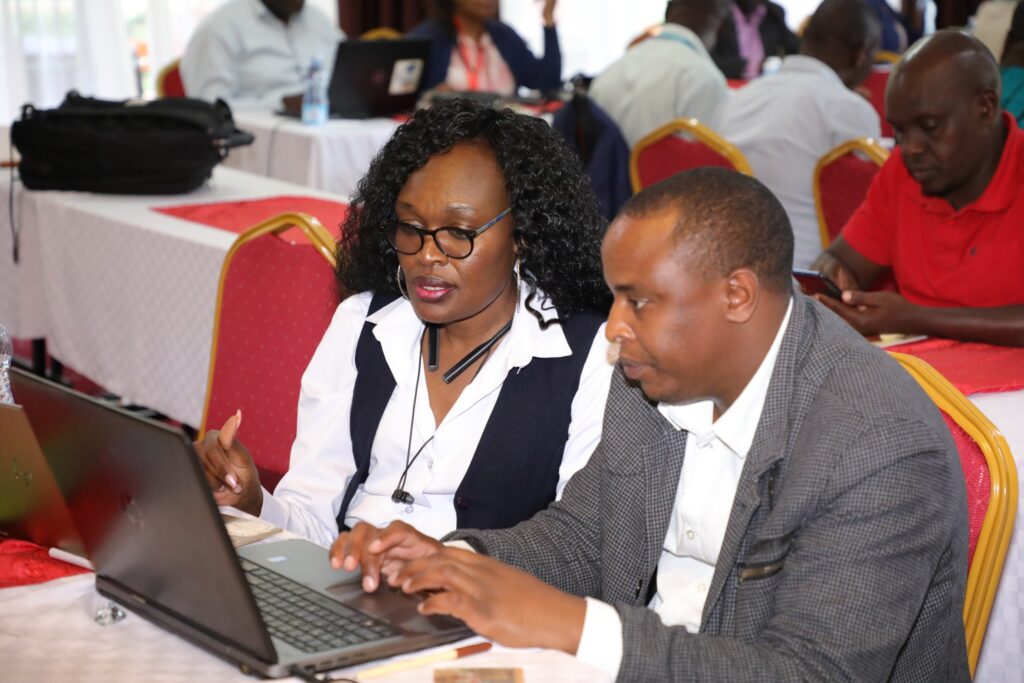
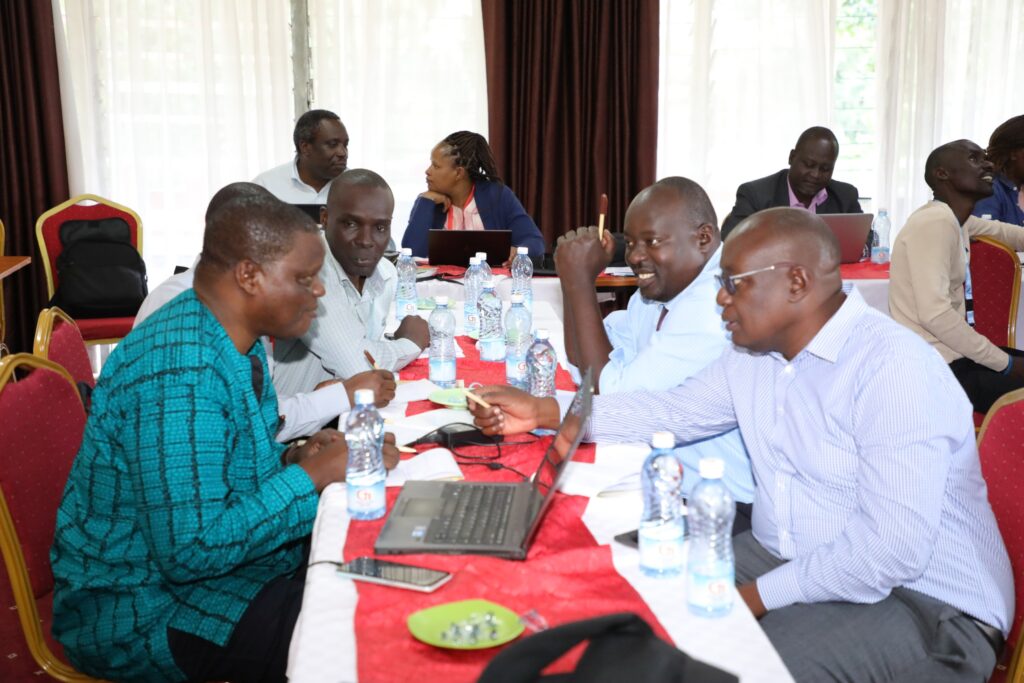
By Caren Nekesa
Photos by Shiundu Masafu



